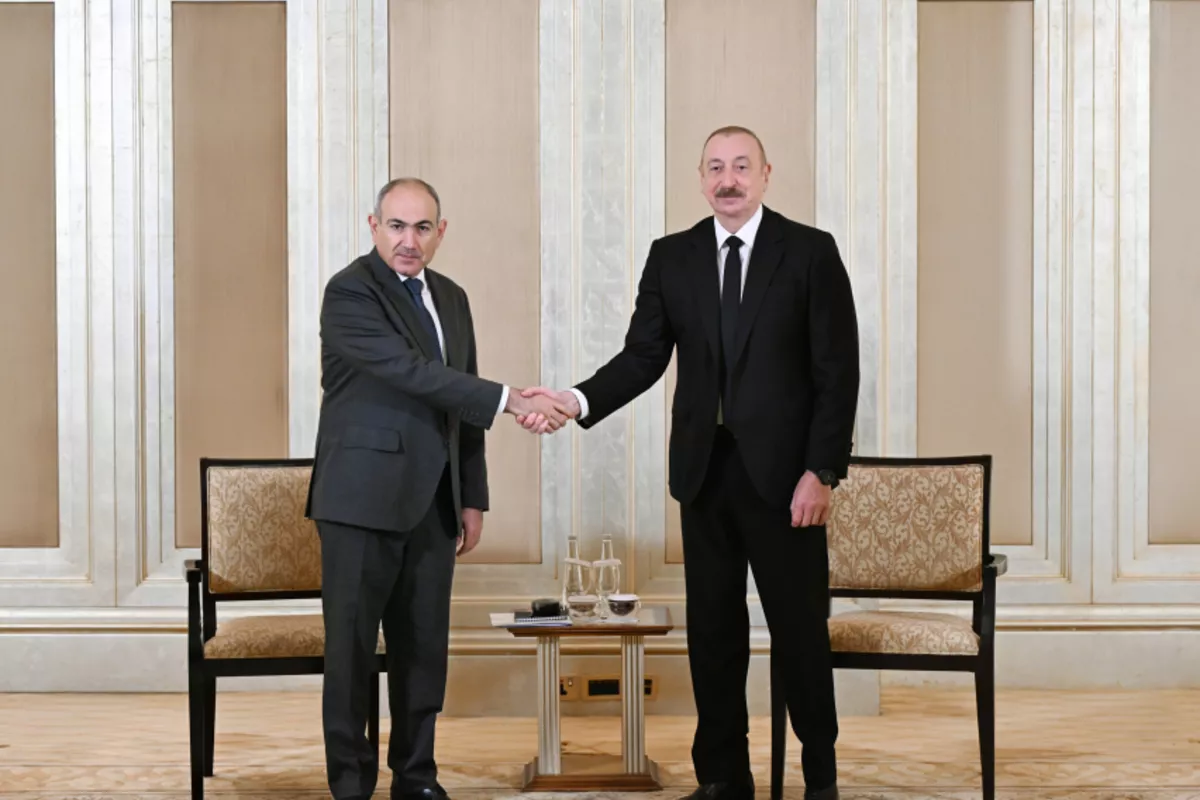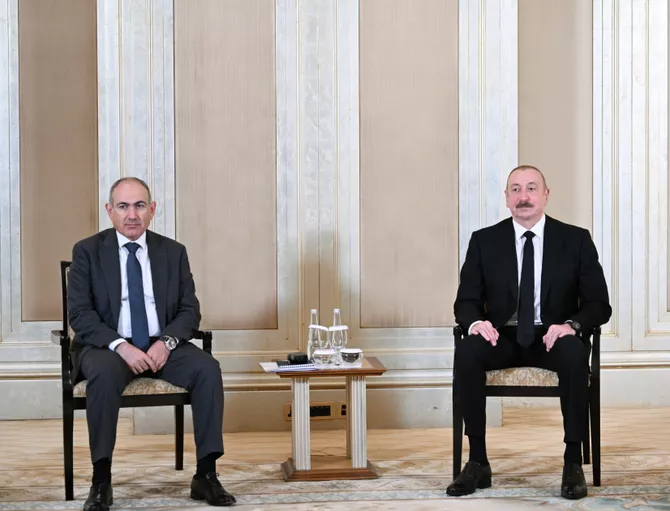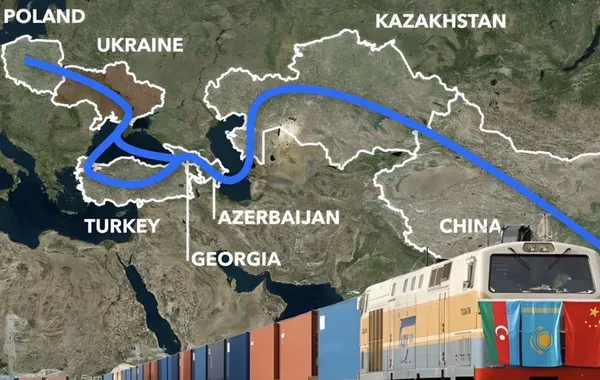
Photo: AZERTAC
The meeting between Azerbaijani President Ilham Aliyev and Armenian Prime Minister Nikol Pashinyan, held in the UAE, marked an important development in the context of Armenian-Azerbaijani dialogue. Against the backdrop of a prolonged pause in negotiations and continued regional tensions, the very fact of a full-fledged meeting attracted significant attention. For the first time in a long while, the two sides held a substantive bilateral conversation without intermediaries - suggesting a possible shift in approaches to normalizing relations.
The last informal contact between the two leaders took place in May 2024 on the sidelines of the European Political Community Summit in Tirana. However, that brief interaction did not produce tangible results. Against this background, the Abu Dhabi meeting may be seen as an attempt to transition to a more practical and focused engagement.
The talks occurred amid noticeable domestic political changes in Armenia. The Armenian leadership has intensified pressure on opposition figures, including the ARF "Dashnaktsutyun" party, which traditionally takes a hardline nationalist stance. According to local media, the authorities are taking steps to limit the party’s activities within the country. Analysts suggest that these actions may reflect the government’s desire to demonstrate a readiness for internal transformation aimed at reducing confrontational rhetoric and pursuing a more pragmatic agenda.
According to the Azerbaijani Foreign Ministry’s statement following the talks, both sides reaffirmed the effectiveness of the bilateral format and agreed to continue work along these lines. Particular attention was given to the issue of border delimitation. The two leaders instructed the relevant state commissions to intensify their work in this area. They also agreed to continue bilateral dialogue and confidence-building efforts.
One indicator of the seriousness of the meeting was the expanded composition of the delegations - a format not previously used. This points to the comprehensive nature of the agenda. According to unofficial sources, key topics included border delimitation, the opening of transportation routes - including the Zangezur corridor - and the possible initialing of a peace agreement.

Photo: AZERTAC
The issue of borders remains one of the most sensitive. Following the return of four villages to Azerbaijan in May 2023, the delimitation process stalled. In Armenia, this triggered a wave of protests and political instability. Today, the Armenian government appears more willing to resume the process, which opens a window of opportunity for resolving contentious issues.
The prospects for signing a peace agreement also seem more realistic than before. Baku has consistently emphasized the importance of clear and specific terms. In recent months, the rhetoric from the Armenian side has become more measured and constructive - a possible sign that positions are drawing closer.
Regarding transport corridors - particularly the proposed route through Armenia’s southern regions - disagreements persist. The implementation of the relevant provisions of the trilateral statement of 10 November 2020 has faced numerous political and technical hurdles, including the involvement of third countries and external actors. Media reports have even mentioned the possibility of involving foreign private companies to ensure the security of the routes, further underscoring the complexity and sensitivity of the issue.
Although officials have refrained from providing detailed commentary, it is known that the Abu Dhabi talks included a deep and constructive discussion of all key issues. The main objective is to develop a sustainable framework for peace and security in the South Caucasus. In this regard, the continuation of bilateral dialogue at various levels may become a key mechanism for making meaningful progress.
There is hope that the political will demonstrated in Abu Dhabi will indeed mark a turning point - one that leads not to new declarations, but to concrete steps: the signing of a peace agreement, the resumption of the border delimitation process, and the launch of joint infrastructure projects. Only such a comprehensive and pragmatic approach can not only stabilize the situation but also lay a solid foundation for long-term peace, mutual trust, and sustainable development throughout the South Caucasus.
By Tural Heybatov
Share on social media
